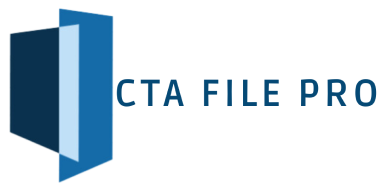Is My HOA a Reporting Company Under the Corporate Transparency Act?
The Corporate Transparency Act (CTA) requires certain entities to disclose their beneficial ownership information to the Financial Crimes Enforcement Network (FinCEN) to combat illicit activities such as money laundering and terrorism financing. Homeowner Associations (HOAs) and condominium associations often wonder whether they fall under the definition of a reporting company under the CTA. This article explores the criteria that determine whether an HOA is a reporting company and the implications of such a designation.
Criteria for Reporting Companies
Under the CTA, a "reporting company" is defined as a corporation, limited liability company (LLC), or other similar entity that is created by the filing of a document with a secretary of state or similar office under the law of a state or Indian Tribe (this would include the State Department of Assessments and Taxation for Maryland entities). This broad definition includes many types of entities but also includes several exemptions.
Exemptions Relevant to HOAs
The CTA outlines 23 categories of entities that are exempt from reporting requirements. Some exemptions that may apply to HOAs include:
• Large Operating Companies:Entities that employ more than 20 full-time employees in the U.S., have an operating presence at a physical office within the U.S., and have filed a federal income tax return demonstrating more than $5 million in gross receipts or sales.
• Nonprofit Organizations:Entities that are exempt from taxation under section 501(c) of the Internal Revenue Code.
Many HOAs will not meet the criteria for these exemptions due to their structure and function. If an HOA is structured as a corporation or LLC and does not meet any of the specified exemptions, it is likely considered a reporting company under the CTA.
What Information Is a Reporting Company Required to Report?
If your HOA is classified as a reporting company under the CTA, it must report specific information about its beneficial owners and itself to FinCEN. The required information includes:
Beneficial Owner Information:
• Full legal name.
• Date of birth.
• Current residential or business street address.
• Unique identifying number from an acceptable identification document (such as a passport or driver's license).
• Image of identification document.
Entity Information:
• Full legal name.
• Any trade name or "doing business as" (DBA) name.
• Jurisdiction of formation or registration.
• Internal Revenue Service (IRS) taxpayer identification number (TIN), including an Employer Identification Number (EIN).
Principal Place of Business for HOAs
For an HOA without a clubhouse or office, determining the "principal place of business" can be challenging. Generally, the principal place of business is the location where an individual conducting the HOA’s business activities may be found. For HOAs, this might be the address of a senior board member. The address typically should be located within the community and may not be a P.O. Box. It is imperative that this address be promptly updated as needed.
Conclusion
Determining whether your HOA is a reporting company under the Corporate Transparency Act involves understanding the specific criteria and exemptions outlined by the CTA. If your HOA is structured as a corporation or LLC and does not meet any exemptions, it is likely subject to the reporting requirements. Compliance with these requirements is essential to avoid penalties and ensure transparency.
Disclaimer
This article provides general information and is not intended as legal advice. HOAs and other entities subject to the Corporate Transparency Act should consult with an attorney for advice specific to their circumstances.
